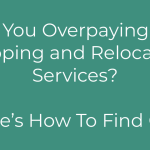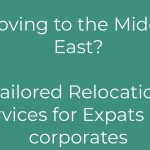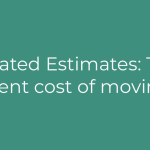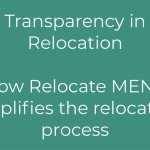Challenges Facing the Economy of the Middle East
Explore the various impacts of the Middle East’s economic situation and determine how citizens, businesses, and governments can work together to tackle these issues.
The Middle East has been subject to various economic and political pressures. As the region’s citizens, businesses, and governments look for ways to tackle these challenges, it’s essential to understand these issues’ impacts on the region. From political conflicts to resource scarcity, this article will explore how these issues can be tackled and what their effects are.
Rapid Population Growth.
The Middle East is one of the world’s fastest-growing and most populous regions. This rapid population growth has had various impacts, notably on infrastructure, employment rates, and economic stability. Unless managed properly, this population surge could lead to an unsustainable strain on resources and further unrest in many parts of the region. Governments must ensure households have access to housing, water, healthcare, and other essentials for a basic standard of living.
The most significant impact on the region has been on its infrastructure. Rapid population growth has put a great strain on water and electricity resources, resulting in limited access, poor quality service, and disruption. The housing crisis is another concern, with the average household size of up to five people in some countries leading to overcrowding and instability due to the displacement of low-income families trying to make ends meet. Although governments are investing in public infrastructure across the Middle East, there is still much work to be done if they want to keep up with the population’s needs.
Growing urban populations and extreme climates also pose a challenge to the region. Energy demands have skyrocketed, putting a greater strain on electricity generation and water allocation in the region. Also, due to poor infrastructure, many citizens lack access to adequate healthcare and education opportunities. Addressing these issues is an urgent priority if governments are to build strong economies that offer sustainable livelihoods for their people in the Middle East.
The Middle East is experiencing rapid population growth, with the majority of new citizens being young people. This puts a great strain on resources and poses a challenge for governments to create more jobs, adequate housing, and healthcare. The regional population is expected to exceed 480 million by 2025 from the current 370 million. To ensure economic development that benefits all citizens, leaders must tackle the issues of poverty and inequality in order for the region to experience sustained economic growth over the long term. Investing in infrastructure, education, job-creation schemes, and targeted financial assistance for low-income households are some of the avenues that need to be explored.
Since many Middle Eastern countries are blessed with valuable natural resources, there is an opportunity to diversify their economies away from oil and gas-dependent industries and seek global trade opportunities. However, simply increasing the production of traditional goods alone will not be enough; new economic sectors such as e-commerce, IT-enabled services, manufacturing, finance, and the media must be invested in to create more jobs and help drive economic growth. Implementation of long-term plans that prioritize sustainable development, promote innovation and recognize the needs of younger generations will be essential for the region to move forward.
One of the most pressing challenges affecting the region is rapid population growth. In many countries, the population has grown alarmingly fast over the past couple of decades due to reduced infant mortality and improved healthcare. This has put immense pressure on governments to generate more jobs and improve their educational systems to accommodate the burgeoning numbers of young people entering the workforce. Governments must find ways to promote entrepreneurship while providing the correct safety nets if they are serious about tackling poverty and unemployment — two major issues facing citizens in many Middle Eastern countries. If done correctly, development policies can help drive social inclusion throughout all strata of society, from rural populations to urban centers and from low-income households to high-net-worth individuals.
Tackling the region’s population growth must go hand-in-hand with addressing economic challenges. Although economic growth rates have improved in some Middle Eastern countries, they remain volatile and depend largely on changes in global oil prices, while non-oil-based industries have yet to gain traction. Moreover, rising income inequalities in certain countries are an issue of concern, as there is a risk of further divides between rich and poor if these disbalances are not addressed. Governments need to increasingly focus on introducing policies that encourage business formation, strengthen private sector innovation, and foster job creation strategies for all citizens regardless of socio-economic status. Doing so would enable faster and more sustainable economic growth throughout the region.
The region’s population nearly tripled from 1960 to 2017 and is projected to increase by another 25% in the next two decades. With about 60% of its population under 25, the Middle East and North Africa face tremendous pressure from rapidly increasing populations. A ballooning youth demographic means increased demand for public services, housing, and employment opportunities, which, if not adequately addressed, would stifle the potential of this large segment of society and pose a risk to regional stability. Consequently, governments must strive towards investing in education, healthcare, and job training programs while encouraging innovation as one of the key pillars for socio-economic transformation.









